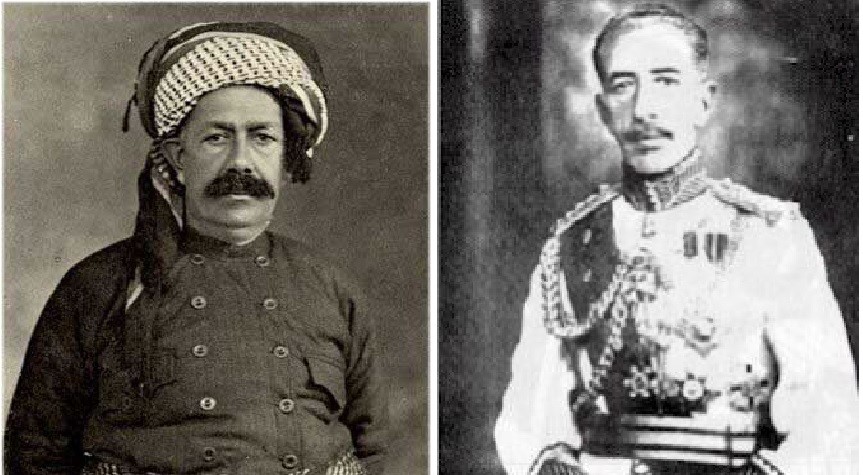As mentioned in the previous section of this article, the Middle East and all the regions under the Ottoman Empire experienced strange turmoil after World War. Kurdistan, Turkey, and Arabic Iraq were not immune from this fate. The Turks, who were reorganizing themselves after the collapse of the Ottoman Empire, based on a fascist nationalism, were trying to regain more of the territory previously under Ottoman rule. Especially in northern Iraq and southeastern Turkey. Much of these areas were still administered under British supervision. As we mentioned, people like Edmonds and Sir Percy Cox, the British governor's minister, organized and planned for them.
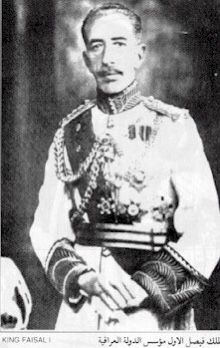
On the other hand, the situation in the borders between North and South parts of Kurdistan was unclear and Malik Faisal and the Turks had entered into negotiations against the Kurds to resolve or clarify the situation and the way of governing those areas. Strangely, although the British were against the Turkish presence in southern Kurdistan and the north of the newly formed Iraq, they were also against direct negotiations with the Turks by their puppet Malik Faisal. In other words, Britain did not allow the independence of opinion of the delegates and local administrators of other countries, at least to decide directly about the area entrusted to them. We will discuss the same issue later about Sheikh Mahmud Barznji, how they gave him power and opposed him.
At that time, parts of Kurdistan were under the rule of Smail Agha Simko. The Turks sent Turkish representatives and commanders to the Kurdish areas of the southern part of Kurdistan, such as Rwandz, and passed through the area under Simko's rule. They went to Rwandz and appointed an officer named Fazel Efendi as their commander and director.
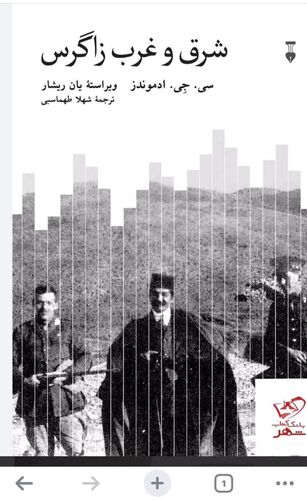
The war between Turks and Kurds began in Rwandz. Britain, meanwhile, is afraid of the Turkish movement in Kurdistan and is suspicious of the Kurdish direction for independence. Britain is not sure of the reaction of the Arabs on the one hand and they suspected that perhaps the Kurdish movement against the Turks was nourished by the French so that France could maintain influence in the oil fields of Mosul and Kirkuk. Therefore, Britain bombed the city and the Turkish forum.
Thus, the struggle in the southern part of Kurdistan continues. The Turks leave the front once and then appoint a governor for Rwandz again.
Part of southern Kurdistan, the Suleimani region, was also politically governed by Kurdish leaders who wanted independence and secession from Iraq. But both the Arabs in Baghdad and the British are against the Kurds who are running their territory without any problems and fighting with anyone.
The British did not want South part of Kurdistan to be independent, but they did not want it to fall into the control of the Turks and were sure that the Kurds would react if the Arabs attacked them, so they were looking for a solution that would not have any of these negative consequences.
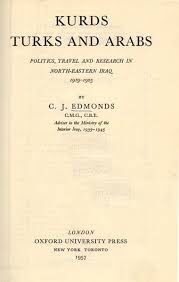
They wanted the region, especially the Suleimani region, to be governed by local people, but they should obey, then have no other political ambitions and demands, not risk secession from Iraq, and not cause new problems.
But their most basic problem was to find a figure in the distorted space of Iraqi and Kurdistan politics, who could influence the Kurdish people and create unity for the stabilization of the region among the Kurds of that region. There were several different opinions about the chosen personality. They were not sure which Kurdish personality could quench the storm of love and hatred of the Kurds and lead them. Some British, such as Edmonds, wanted someone like Sayid Taha Shamzinan to take over, but Cox did not think he had enough power and influence to fulfil this task.
Another group of British were looking for someone with a family political history, so that they could use this family history as a trust and convince the people, so they appointed someone like "Hamid Beyg Baban" of the lineage of the Baban princes of Suleimani. But as Chris Cochera says, he did not speak Kurdish and cared more about his family history than Kurds. Therefore, Sir Percy Cox decided to return Sheikh Mahmud Barznji, whom they had previously arrested and imprisoned, to Suleimani and entrust him with the rule of the area.
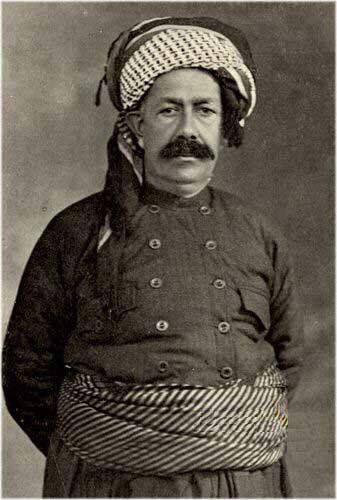
Someone like Cox and Britain generally believed that by releasing Sheikh Mahmud, he would remain in the position of governor of a province, thus making the Arabs happy and preventing the struggle of the Turks.
In the next section, we will discuss how Sheikh Mahmud ruled, his political direction, and the reaction of Britain and the Arabs to Sheikh Mahmud.

